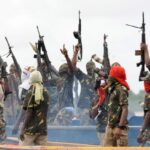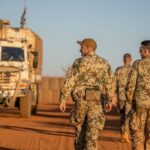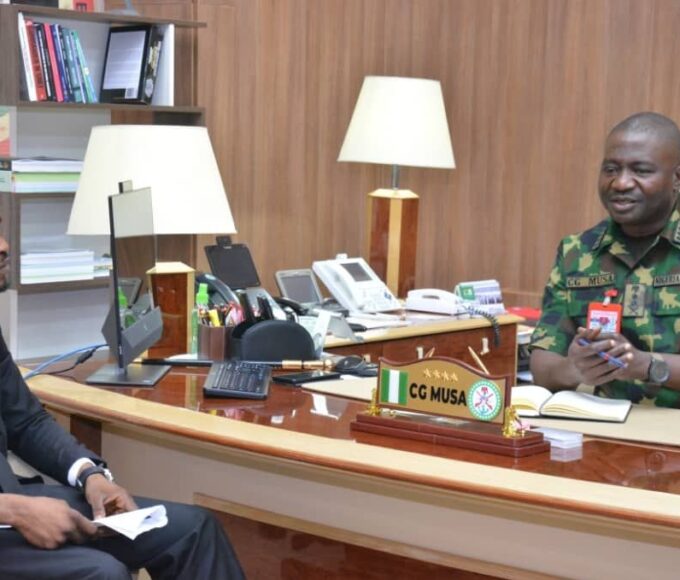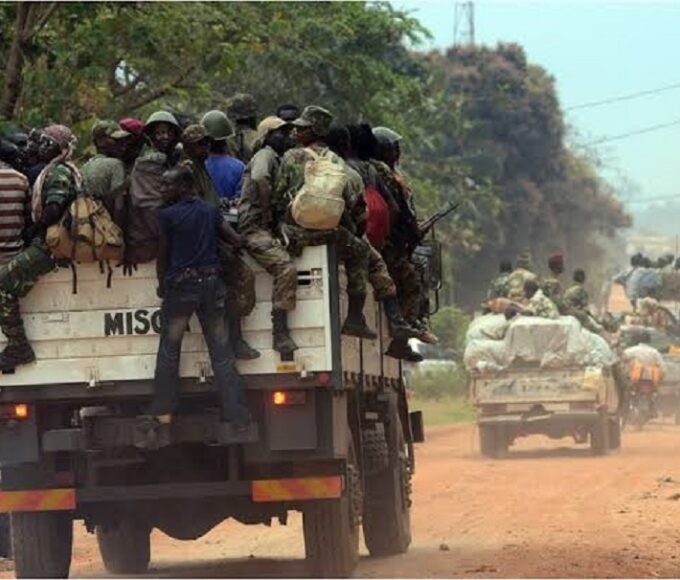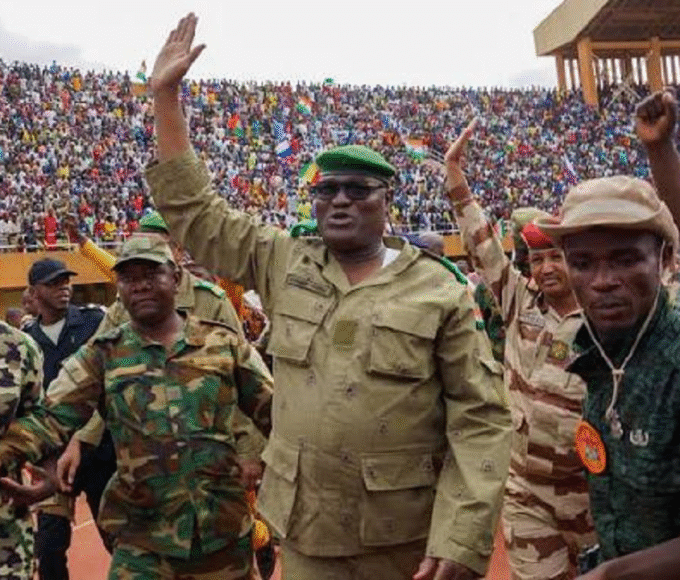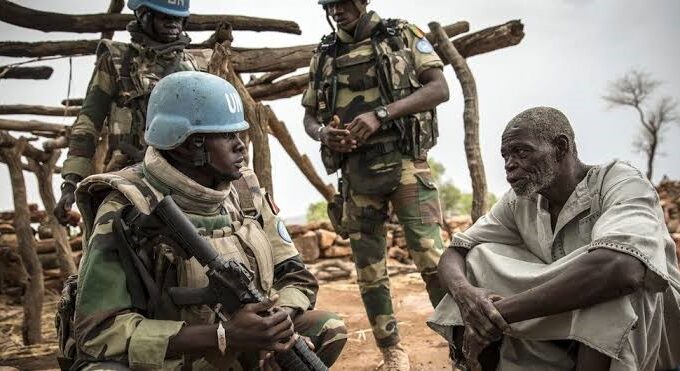Transitional Justice and the Armed Forces: Navigating Past Atrocities
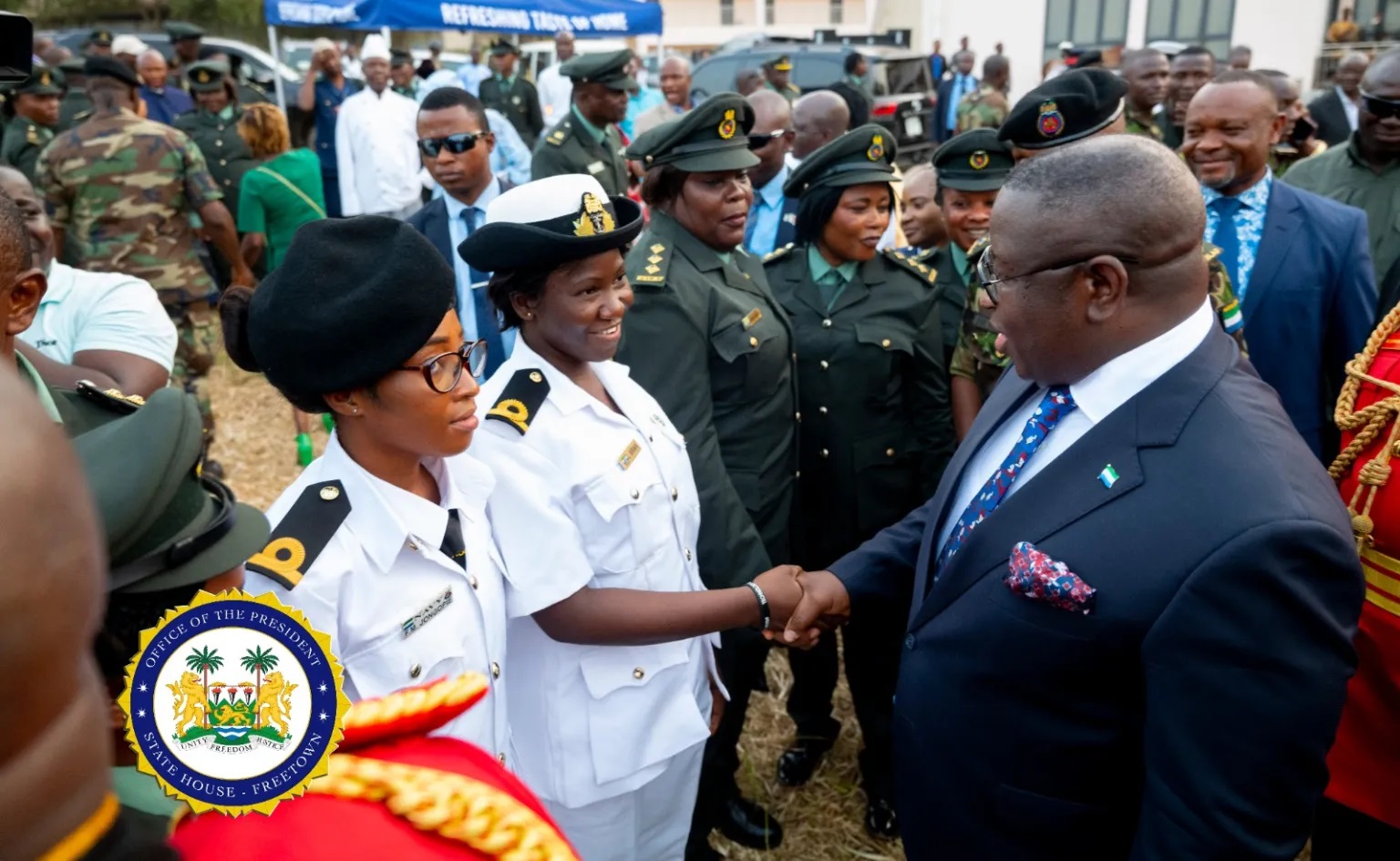
On an autumn morning in October 1997, inside Cape Town’s Good Hope Centre, television cameras zoomed in on a man in olive green dress uniform, his medals catching the stage lights. He was not there to command troops but to answer questions. Before him sat Archbishop Desmond Tutu and the panel of South Africa’s Truth and Reconciliation Commission (TRC), tasked with confronting the brutal legacy of apartheid-era violence. The officer, a senior figure in the South African Defence Force, described—in measured tones—operations that had blurred the line between counterinsurgency and political repression. For the first time, the nation watched soldiers account publicly for actions carried out under state orders.
It was a rare spectacle in African military history: the armed forces stepping into the bright, often unforgiving light of transitional justice.
From Silence to the Witness Stand
Across the continent, armies emerging from civil war, dictatorship, or mass atrocities have faced the same dilemma: how to reconcile their institutional survival with the demands of truth, justice, and reconciliation. The approaches have varied widely.
In Sierra Leone, where the 1991–2002 civil war saw parts of the army collude with the Revolutionary United Front rebels, post-war reforms under British military advisers did more than rebuild capabilities — they restructured command hierarchies, screened personnel for human rights violations, and established codes of conduct that became part of military training.
In Rwanda, the aftermath of the 1994 genocide saw the creation of Gacaca courts — community-based tribunals that tried more than a million cases, including those involving soldiers accused of reprisal killings. While the Gacaca system accelerated justice in rural areas, it faced criticism for uneven application and for shielding members of the post-genocide military from equivalent scrutiny.
Prosecute or Pardon? The Uneasy Balance
One of the thorniest issues in transitional justice is deciding whether soldiers implicated in atrocities should be prosecuted, pardoned, or integrated into the new order.
South Africa’s TRC opted for conditional amnesty: perpetrators who made full disclosure of politically motivated crimes could avoid prosecution. This allowed some military officers to escape jail time, a compromise intended to keep the peace during the fragile democratic transition. Critics argue it traded justice for stability; defenders say it prevented potential military backlash.
Sierra Leone took a mixed route: low-level offenders were granted amnesty under the Lomé Peace Agreement (1999), but senior figures could be tried by the Special Court for Sierra Leone. This hybrid model — part political necessity, part legal accountability — remains a template in African conflict settlements.
The Morale Question
Prosecuting soldiers for past crimes can strengthen a military’s credibility, but it can also fracture unit cohesion, especially if prosecutions are perceived as politically motivated. Retired Brigadier General Samuel Conteh of Sierra Leone recalls that early post-war years were “a balancing act between purging the bad and keeping enough trained men to secure the borders.”
In Rwanda, where the army became the backbone of the new state, prosecutions of soldiers were carefully managed to avoid undermining the institution’s role in stabilisation. In contrast, in Guinea-Bissau, repeated purges of the armed forces after coups in the 2000s weakened operational readiness and deepened factionalism.
The Power of the Archive
Military archives often hold the keys to accountability — operation logs, orders, personnel rosters. Yet in many African contexts, these records are incomplete, destroyed, or guarded as state secrets.
In South Africa, TRC investigators fought for access to security force archives, uncovering files that revealed covert assassination programmes. In Rwanda, much of the genocide-era military documentation was lost or deliberately destroyed during the retreat of the former regime. In Sierra Leone, British-led reforms introduced new archiving standards to preserve operational histories for future scrutiny.
Global experience suggests that safeguarding and opening military records can be transformative. In Argentina and Chile, declassified military documents decades after the dictatorships became crucial in convicting former officers for human rights abuses. African militaries that take archiving seriously signal a commitment to institutional memory — and to justice.
Selective Justice: The Political Trap
Transitional justice in Africa often operates in a political minefield. In some cases, ruling parties shield their allied officers from prosecution while pursuing opponents aggressively. This “selective justice” undermines public confidence and fuels accusations of victor’s justice.
In Ethiopia’s post-Derg trials (1990s–2000s), hundreds of former military officials were convicted for atrocities committed under Mengistu Haile Mariam’s regime, yet allegations of abuses by the new Ethiopian National Defence Force in later conflicts received less scrutiny. The lesson is stark: transitional justice that appears partisan risks eroding both reconciliation and military reform.
Borrowing from Global Best Practices
While Africa’s post-conflict contexts are unique, lessons from other regions offer guidance:
- Chile & Argentina – Gradual judicial re-engagement with past atrocities, supported by systematic declassification of military archives.
- Bosnia-Herzegovina – Integration of former adversary forces into a unified army under NATO mentorship, combined with war crimes tribunals.
- East Timor – Community-based truth commissions that operated alongside formal prosecutions, creating space for both restorative and retributive justice.
For African militaries, the takeaway is that transitional justice works best when it combines truth-telling, legal accountability, and security sector reform in a carefully sequenced process.
Case Study: Sierra Leone’s “Security First” Reform Model
Sierra Leone’s approach after 2002 remains one of the continent’s most studied. Instead of immediate mass trials, the government prioritised securing the country with a reformed army trained to respect civilian authority. Screening processes quietly removed those implicated in atrocities, while the Special Court pursued high-level offenders. Over time, human rights training became a core curriculum at the Armed Forces Training Centre, embedding a new professional ethos.
The model’s strength lay in its sequencing: stabilise the military first, then gradually increase accountability measures. This avoided the institutional collapse seen in other post-conflict states.
Rwanda: Justice at Scale, but at a Cost
The Gacaca courts demonstrated that large-scale transitional justice is possible in Africa, but the military’s role in the process was both central and contentious. Soldiers facilitated security for the courts and sometimes testified, but critics note that members of the ruling Rwandan Patriotic Army faced far fewer prosecutions for alleged reprisal killings than perpetrators from the defeated regime. While the system processed over 1.2 million cases, questions remain about impartiality and the long-term reconciliation impact.
The Road Ahead: Truth, Reform, and Trust
The future of transitional justice in African militaries may depend on integrating accountability mechanisms directly into security sector reform. This means embedding independent oversight, protecting military archives, and ensuring that prosecutions — when they occur — are credible and free from political manipulation.
Technological tools could help. Secure digital archiving, blockchain-based chain-of-custody systems for evidence, and encrypted testimony platforms for whistleblowers can safeguard truth-telling even in politically unstable environments.
But ultimately, transitional justice is less about tools than about political will. As Archbishop Tutu reminded the TRC in 1998, “Without truth, there can be no healing. Without forgiveness, there can be no future.” For militaries, that truth can be uncomfortable — but avoiding it is far costlier.
SNAPSHOT: Key Transitional Justice Mechanisms in Africa
- South Africa TRC (1995–2002) – Conditional amnesty for full disclosure; public military testimony.
- Sierra Leone Special Court (2002–2013) – Tried high-ranking military and rebel leaders; integrated reform into army rebuilding.
- Rwanda Gacaca Courts (2002–2012) – Community-based trials, including military-linked cases; over 1 million processed.
In post-conflict Africa, the armed forces are not just instruments of state power — they are repositories of history, memory, and sometimes guilt. Navigating past atrocities requires courage, not only from victims and politicians, but from soldiers themselves. Only when truth and reform march in step can the cycle of impunity be broken.
King Richard Igimoh, Group Editor ALO
King Richard Igimoh, Group Editor African Leadership Organisation is an award-winning journalist, editor, and publisher with over two decades of expertise in political, defence, and international affairs reporting. As Group Editor of the African Leadership Organisation—publishers of African Leadership Magazine, African Defence & Security Magazine, and Africa Projects Magazine—he delivers incisive coverage that amplifies Africa’s voice in global security, policy, and leadership discourse. He provides frontline editorial coverage of high-profile international events, including the ALM Persons of the Year, the African Summit, and the African Business and Leadership Awards (ABLA) in London, as well as the International Forum for African and Caribbean Leadership (IFAL) in New York City during the United Nations General Assembly.
Recent Posts
Categories
- Air & Aerospace17
- Border Security15
- Civil Security6
- Civil Wars4
- Crisis5
- Cyber Security8
- Defense24
- Diplomacy19
- Entrepreneurship1
- Events5
- Global Security Watch6
- Industry8
- Land & Army9
- Leadership & Training5
- Military Aviation7
- Military History27
- Military Speeches1
- More1
- Naval & Maritime9
- Policies1
- Resources2
- Security12
- Special Forces2
- Systems And Technology9
- Tech6
- Uncategorized6
- UNSC1
- Veterans7
- Women in Defence9
Related Articles
Why General C.G. Musa Is the Right Defence Minister for Nigeria—Right Now
President Bola Tinubu’s nomination of General Christopher Gwabin Musa (rtd.) as Minister...
ByKing Richard Igimoh, Group Editor ALODecember 2, 2025DIPLOMACY, PEACE & CIVIL SECURITY – CROSS-BORDER PEACE PACTS IN EAST AFRICA: SUCCESS OR FAILURE?
From the windswept Karamoja hills to the fishing villages of Lake Victoria,...
ByKing Richard Igimoh, Group Editor ALONovember 24, 2025ECOWAS MILITARY INTERVENTION IN NIGER: A TURNING POINT?
The coup d’état in Niger on July 26, 2023, marked a seismic...
ByKing Richard Igimoh, Group Editor ALOOctober 7, 2025CIVIL-MILITARY RELATIONS IN FRAGILE STATES
Fragile states marked by weak governance, economic instability, and persistent unrest face...
ByKing Richard Igimoh, Group Editor ALOSeptember 17, 2025





